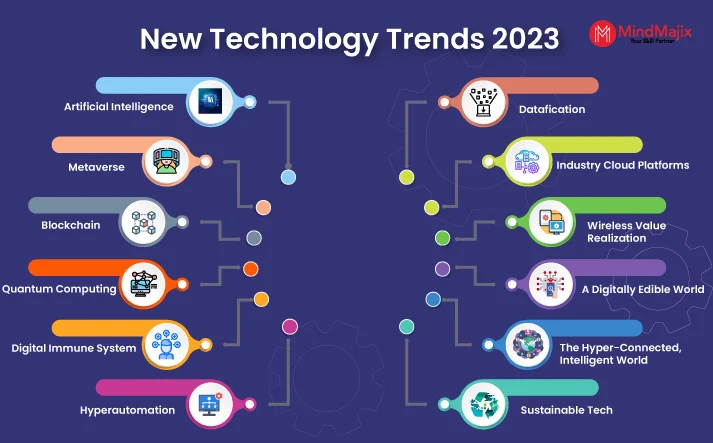In an era where data breaches and cyber threats are becoming increasingly sophisticated, quantum computing emerges as a groundbreaking solution poised to redefine data security. This revolutionary technology leverages the principles of quantum mechanics to process information at unprecedented speeds, offering a new frontier in safeguarding sensitive data. As we delve into the intricacies of quantum computing, we will uncover its potential to outpace traditional encryption methods and provide robust defenses against emerging cyber threats.
Throughout this article, you will learn about the fundamental concepts of quantum computing and how they apply to data security. We will explore the differences between classical and quantum encryption techniques, highlighting the advantages that quantum algorithms bring to the table. Additionally, we will discuss real-world applications of quantum technology in securing communications and protecting personal information, illustrating its transformative impact on various industries.
As we navigate through the complexities of this cutting-edge field, we invite you to join us on this enlightening journey. By the end of this article, you will not only grasp the significance of quantum computing in enhancing data security but also be equipped with insights into its future implications. Stay with us as we unravel the mysteries of quantum technology and its role in shaping a safer digital landscape.
As the digital landscape evolves, so do the threats to data security. Quantum computing emerges as a revolutionary technology that promises to redefine how we approach data protection. This article explores various aspects of quantum computing and its implications for data security.
Understanding Quantum Computing
Quantum computing is a cutting-edge technology that leverages the principles of quantum mechanics to process information. Unlike classical computers that use bits as the smallest unit of data, quantum computers utilize qubits, which can exist in multiple states simultaneously. This unique property allows quantum computers to perform complex calculations at unprecedented speeds.
The potential of quantum computing extends beyond mere speed; it also introduces new algorithms that can solve problems deemed intractable for classical computers. As researchers continue to explore this technology, its implications for data security become increasingly significant.
Quantum Key Distribution (QKD)
One of the most promising applications of quantum computing in data security is Quantum Key Distribution (QKD). QKD allows two parties to generate a shared, secret random key, which can be used for secure communication. The security of QKD is based on the principles of quantum mechanics, making it theoretically immune to eavesdropping.
In QKD, any attempt to intercept the key will disturb the quantum states, alerting the communicating parties to the presence of an intruder. This feature makes QKD a powerful tool for securing sensitive information, especially in sectors like finance and healthcare where data breaches can have severe consequences.
Quantum-Resistant Algorithms
As quantum computers become more powerful, the need for quantum-resistant algorithms becomes critical. Traditional encryption methods, such as RSA and ECC, are vulnerable to quantum attacks, particularly Shor’s algorithm, which can factor large numbers efficiently. This vulnerability poses a significant risk to current data security protocols.
To combat this threat, researchers are developing new cryptographic algorithms designed to withstand quantum attacks. These quantum-resistant algorithms aim to secure data against potential future quantum threats, ensuring that sensitive information remains protected in a post-quantum world.
The Role of Quantum Computing in Blockchain Security
Blockchain technology, known for its security and transparency, faces challenges from the advent of quantum computing. While blockchain relies on cryptographic techniques to secure transactions, the rise of quantum computers could compromise these methods. Quantum attacks could potentially allow malicious actors to manipulate blockchain data or steal private keys.
To address these concerns, the integration of quantum-resistant algorithms into blockchain systems is essential. By enhancing blockchain security with quantum-resistant cryptography, developers can ensure the integrity and security of decentralized networks in the face of evolving threats.
Implications for Cloud Security
As organizations increasingly rely on cloud services for data storage and processing, the implications of quantum computing for cloud security cannot be overlooked. Quantum computers could potentially decrypt sensitive data stored in the cloud, exposing organizations to significant risks.
To mitigate these risks, cloud service providers must adopt quantum-resistant encryption methods and continuously update their security protocols. By staying ahead of quantum threats, organizations can protect their data and maintain trust in cloud services.
The Future of Data Privacy
Quantum computing has the potential to reshape the landscape of data privacy. With the ability to break traditional encryption methods, quantum computers could expose personal and sensitive information on a massive scale. This reality raises concerns about individual privacy and the security of personal data.
To safeguard data privacy in a quantum future, it is crucial to develop robust privacy-preserving technologies. These technologies should focus on ensuring that individuals retain control over their data, even in the face of advanced quantum threats.
Industry Applications and Use Cases
Various industries stand to benefit from the advancements in quantum computing and its implications for data security. For instance, the financial sector can leverage quantum computing for secure transactions and fraud detection. Similarly, healthcare organizations can use quantum technologies to protect patient data and ensure compliance with regulations.
As quantum computing continues to evolve, its applications in data security will expand, offering innovative solutions to complex security challenges across different sectors.
Preparing for a Quantum Future
As we move towards a quantum future, organizations must proactively prepare for the changes that quantum computing will bring to data security. This preparation involves investing in research and development of quantum-resistant technologies, training personnel on quantum security practices, and collaborating with experts in the field.
By taking these steps, organizations can position themselves to navigate the challenges and opportunities presented by quantum computing, ensuring that their data security measures remain effective in an ever-evolving technological landscape.
| Aspect | Description |
|---|---|
| Introduction | Quantum computing represents a paradigm shift in computational capabilities, leveraging the principles of quantum mechanics to process information in fundamentally different ways than classical computers. |
| Data Security Challenges | Traditional encryption methods, such as RSA and ECC, are vulnerable to attacks by powerful quantum computers, which can solve complex mathematical problems much faster than classical computers. |
| Quantum Key Distribution (QKD) | QKD uses quantum mechanics to securely distribute encryption keys. It ensures that any attempt to eavesdrop on the key exchange will be detectable, providing a higher level of security. |
| Post-Quantum Cryptography | Research is ongoing to develop cryptographic algorithms that are secure against quantum attacks. These algorithms aim to replace current standards to ensure data security in a post-quantum world. |
| Potential Applications | Quantum computing can enhance data security in various fields, including finance, healthcare, and government, by enabling secure transactions, protecting sensitive data, and ensuring privacy. |
| Challenges Ahead | Despite its potential, quantum computing faces significant technical challenges, including error rates, qubit coherence times, and the need for scalable quantum systems. |
| Conclusion | Quantum computing holds the promise of revolutionizing data security, but it also necessitates a proactive approach to develop new cryptographic standards and prepare for a future where quantum attacks are a reality. |




